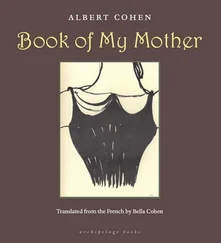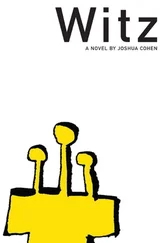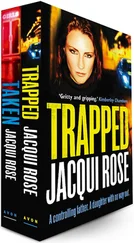They said they were going back to the hotel, so I went along, but it wasn’t my hotel. It was too modern, too minimal as maximal luxe — it was this immense mercury raindrop, shaped like a tear.
Into, and through, the lobby — to throng the elevators, but I took the suspension stairs, which were mocked up into a bookcase holding coffinsized volumes.
I tried lifting the cover or lid of, I won’t record which, but it was nailed.
Up on the mezzanine was this beton empyrean of ballroom, with a party on. And who wasn’t there? I mean that literally. Who wasn’t?
We clocked each other out in the vestibule — this lady and I — sciamachy by the cloakroom hung between the doorways. We clocked each other but let it go.
I studied the wall until she went inside. They were raffling off the wall. I took a ticket. I had one chance to win the wall. At the end of the night the DJ would draw the numbers. The wall was a series of screenbanks stacked like shelves that showed new books and if I liked any title flashing past all I had to do was doubleclick it open and stand amidst the clamor and read.
This lady, she was my successor — putative, emphasis on the first two syllables, because she was Spanish, barrio Spanish, Afro-Cuban NY.
I’m not trying to say she was my replacement, I’m not trying to say I was replaceable, only that I once worked for, and that she still worked for, the Times —our careers might’ve overlapped for a weekend edition. But while I’d written criticism and then quit, she’d been hired to cover the publishing beat, rather the media beat, whose “news” about how much culture was being bought or sold for, how much it grossed, and the business behind its production, was now unequivocally established as the apotheosis of culture and criticism both: the dramas and appraisals of boardroom and backstage, in one convenient package.
The Times ’s local rovers, native floaters, chatted circles around her — they were Germans whose English was so competent that the paper had been able to discard its regular permanent foreign correspondents like second swizzlesticks. Laidoff, forgotten on a tray, as the budgets melted to water everything down. With ad revenue shrinking and so pagecounts shrinking it was better to downsize a single staff job with benefits into two dozen freelance gigs, relying on Germans to cover Germany, musicians to cover Music, artists to cover Art, dancers to terpsichore on the generalist’s mass grave. Media being the last limit of our culture, this woman was one of the last culture staffers left, for the last major paper published in America’s last major publishing city — or, to put it directly, like a journalist would, the Times put her on a plane from NY to write about NY people at the bookfair — they would’ve sent her to Abbottabad had wahhabi warlords bought fullpage ads for Allah.
Finn especially, I’m sure he’s had to do with her — fill in a byline, whichever might be remembered from such filings as “Slicing, Dicing, Ebook Pricing,” or else “Remote Revision: Amazon Alters Ebook Content Without Consent.” Say Finn’s ergosedentarily decumbent with feet propped atop the slushpile of a lazy day, pondering out the window whether that pigeon below him is crippled or just resting, and the phone rings, she has his directline, and he picks up, and she goes all Torquemada inquisitive.
I can’t speak to anything about any layoff/reshuffling, he says. Regrettably. A Joshua Cohen memoir? Who? Hang up. Out amid that sixth floor catchment pool subroofed over Broadway, a pigeon either crippled or resting.
She extracted herself from the klatsch of Germans, taking appetizing nips out of every other server. Dipping crudités. Making cocktail napkin waves. Leaving her pda with a kebab skewer on a tray, turning, retrieving it.
She was big in her little black dress, lashed to it with lathered beads. Pageboyed, her complexion the result of mixed and matched 10 sites’ cosmetic tips, glimmer, shimmer, comedogenic, an It girl who then had to earn It.
“Hey, Cohen, is that you?”
“This is me,” I said, “and this is a vodka soda.”
“Fuck, Cohen — are you alright?”
“Just fine.”
“Seriously?”
“Allergies, it’s an allergic reaction.”
“To the vodka? Or small quiches?”
“Smalltalk.”
LOL, “It’s been since, what? The New Yorker holiday party, 2000s ago?”
“The Copper Age. Early Church.”
“So?”
“What?”
“So who are you here for?”
I popped the quiche and chewed, which kept the expression straight and the tears in check and with a green mouth said, “On spec.”
“Nope, no way.”
“I’m a visiting scholar at the Institut für Sozialforschung,” swallowing, frigid crusts and core.
“Legit?”
I wheezed, “I just happened to be in Frankfurt on assignment for a blog about Euro men’s fashion.”
“Fuck you.”
“Negotiating the reorganization of IG Farben? Or attempting to overthrow the landtag of Hesse?”
“Fuck you limp,” and she went to flip around my lanyard, but I put my hand over hers and prevented her, held her.
Then she withdrew and smoothed the stripe in her hair, puce until the roots, “Why don’t you just promise you’re not filing tonight?”
“Lots of plans tonight but none include filing. Swear on my totebag.”
“Then you can be a source.”
“I’ve been called worse, even nonanonymously.”
“Mind if I ask you a question?”
She, Mary, Mariana (her own lanyard listing free from her breasts), was after the story — I’d better capitalize that, the Story — a tale that functioned like a sixth sense organ alive and proprioceptive, without which it didn’t matter what’d happened in Frankfurt, it might as well have been that nothing had happened.
The Story wasn’t everything, of course, but its telling had to convince editors that it was, or at least had to convince readers that it was — had to story its way into obliterating any intimations of alternative or individual experience. This was the worst of journalism — the realization that no matter how diligently you worked to be impartial, your presence alone was the slant, the tilt, and that even transcendence would have to become narrated, narratized, plotted.
The true story of the fair — she’d clutched for clickerpen, flippad — was that the world rights in every format to every fair’s true story were determined beforehand. All the year’s significant bookdeals were already arranged prior to Frankfurt, in emails, priority whispers. Frankfurt, then, was just where they were announced — when you brought a media property to market, you brought it presold to show it off, or show its price — though details such as the ebook royalty percentage on “copies” exceeding 100,000 might still have to be parsed by the carving stations, untangled on the dancefloor. What other industry has been so neuroticized that it needs a party as an excuse to do business? and needs a business as an excuse to party?
Everyone in this industry was a frustrated writer, which is like all Chairpeople of the Board being frustrated assemblyline workers or machinists, everyone had been a humanities grad with a dream — and that and that alone was the Story, perennially, a tale of people who’d bargained their ways into the business side of books and then once annually were given the opportunity to live their delusion of being crucial to a culture with a trip to a barbarian land conspicuously lacking in the one presence that depressed them at home: writers.
Читать дальше












